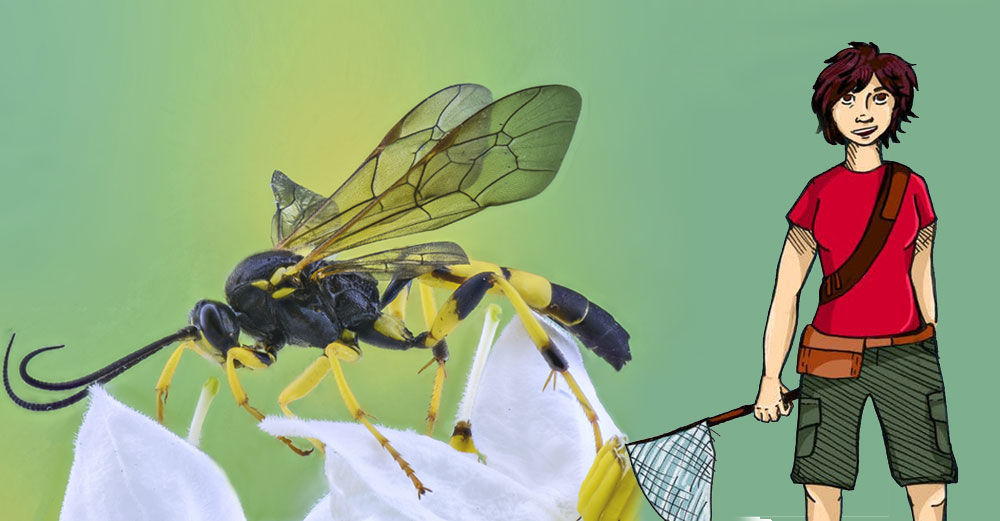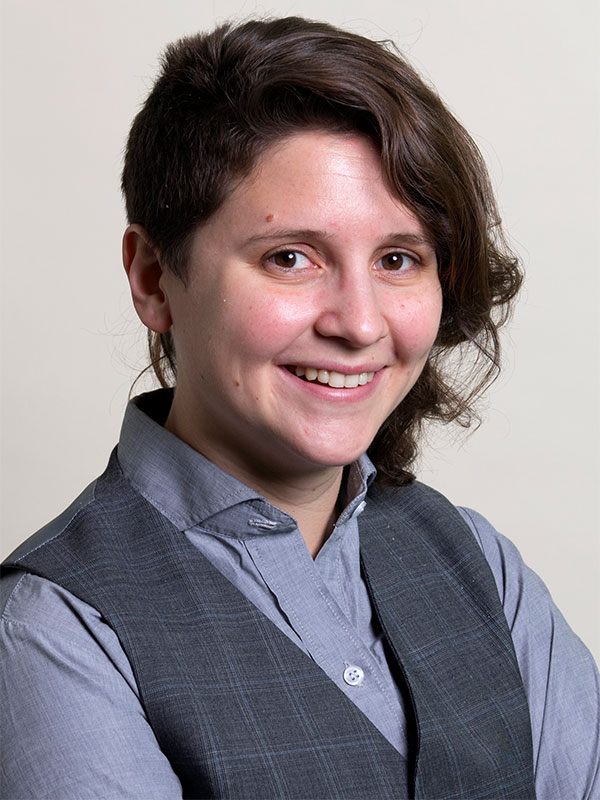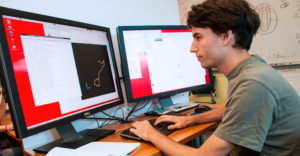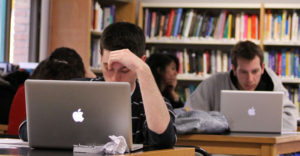
Bugs! Kids who aren’t grossed out by bugs are far and few in between, and like most kids, Carly Tribull grew up shooing them away, running from them, and basically avoiding them at all costs.
So does it make sense that that kid grew up to be an entomologist?
Maybe not, but that’s the reality for Dr. Carly Tribull, assistant professor of biology at Farmingdale State College, and a researcher of the predatory practices of parasitic wasps. As in wasps that invade the bodies of other insects and breed their young inside them.
Sounds like fodder for a horror movie inspired by the Alien film franchise. But for Dr. Tribull, killer wasps – they were the subject of her thesis at the Richard Gilder Graduate School at the American Museum of Natural History in New York – are not only the center of her professional world: they are also the subject of a comic book she drew in grad school, entitled Carly’s Adventures in Wasp Land: Nature’s Horror – Parasitoid Wasps. Populated by anthropomorphic wasps who say things such as “Aw, shucks,” “Howdy,” “Who could possibly like us?”, and finally, “I’m tired of feeling bad about what I am!” the comic is just one in a series in which then-graduate-student Carly Tribull is a character who teaches about wasps.

Originally created for middle schoolers, Dr. Tribull now does Biology Comics for college students, handing out chapters as the semester progresses, with the intention of eventually assembling the content into an online textbook. An ambitious project, she expects to complete it in two years, and make it available at no cost to students and educators worldwide.
“College professors have been teaching comics in the classroom for a long time, but that’s almost always been for the liberal arts,” says Dr. Tribull. “Jay Hosler, another entomologist, has used comics in his biology classrooms and published the results, so I knew there was precedent.
“The response from my students has been positive! Educators have known for a while that designing a lecture topic as a narrative is very effective, and comics only solidify that approach.”
Indulging her creative side
Though Dr. Tribull hated insects growing up, she loved drawing other creatures: all kinds of animals, dinosaurs (she studied paleontology because of them), dragons and other fantastical creatures. She studied art in high school, where she began her comics career.
“I ran a zine with some friends, and there was a section with comics. I wrote your standard young-adult dystopian sci-fi story, as it was the early 2000’s and those were just starting to get popular. There are, thankfully, absolutely no digital copies of this comic.”
She loved indulging her creative side so much that she entertained the idea of going to art school. Her parents, however, immediately dismissed the idea.
“I suppose they were worried about my prospects of finding a job as an artist. Luckily, they didn’t know about the realities of the academic job market until I was already in graduate school!”
Dr. Tribull went to UC Berkley, where she took a double major: Integrative Biology and Practice of Art. Paleontology looked like it would be her thing, but then she interned as a biological illustrator and became interested in parasitism.
“Eventually that led to parasitic systems in insects, and here we are today!”
After earning her PhD in 2015, Dr. Tribull taught for two years at Sam Houston State University in Huntsville, Texas. But she yearned to return to New York, and selected Farmingdale because, she says, it is an “undergraduate, teaching-focused institution.”
One wonders how her comic books influenced the people who interviewed her for the job of assistant professor. Dr. Tribull has a theory.
“I think the search committee was interested in any potential faculty that was interested in engaging with students in unique ways. Since I’ve been here, people have been pretty supportive of the idea of comics as a viable teaching tool, and as something that can generate pedagogy research for me.”
Dr. Tribull teaches biology for non-majors, and has tailored her comic books for them, knowing, she says, that virtually none of them will become biology majors.
“The ‘framing’ narrative are five students that have formed a study group together. Each of the five have different majors, strengths and weaknesses, in addition to the usual personality differences. Each chapter covers the same chapters that you would find in any textbook, but the material is delivered through the lens of one of the five students in the study group trying to teach the others in their unique way.”
Dr. Tribull’s students are, in a sense, guinea pigs to help with her research about the effectiveness of comics in the classroom. She has already published one paper about it, in Annals of the Entomological Society of America.
“Simply put, when I have a couple of chapters finished, I’ll give them to one section – the treatment group – and not to another section – the control group. I teach multiple sections of non-major biology, so this will give me some ability to compare the performance and attitude towards the material in one section versus another.
“When the entire textbook is done, I’ll assign it as the textbook for one section, whereas the other will get a standard text-based Open Educational Resource text, like the OpenStax biology textbook.”
Dr. Tribull also has another passion, and that’s bringing diversity into the field and classroom. One way she does that is to seek out and mentor non-traditional students.
“I’ll be working to mentor students that are underrepresented minorities in the STEM fields. I’m also particularly interested in mentoring women, first-generation college students, and other non-traditional college students. Mentoring isn’t just about bringing these students on for research here at Farmingdale, but also about helping them with their post-college goals. For me, that probably means taking them to national conferences, introducing them to professionals, and advocating for them in their applications to jobs and post-college education.
“As a comic artist, I think about the diversity of my characters a lot – it’s easy to unconsciously fall into the trap of drawing people who look like you, and I want all of my students to be able to see themselves in these comics.”




It never ceases to amaze me what children can learn from reading comics. Or how educational creating a comic book can be. Somehow a series of comic books on wasps doesn’t seem so strange…
Comics help grab the attention of the students. During my career as a pre school teacher, I used this techniques to help students learn very fast.